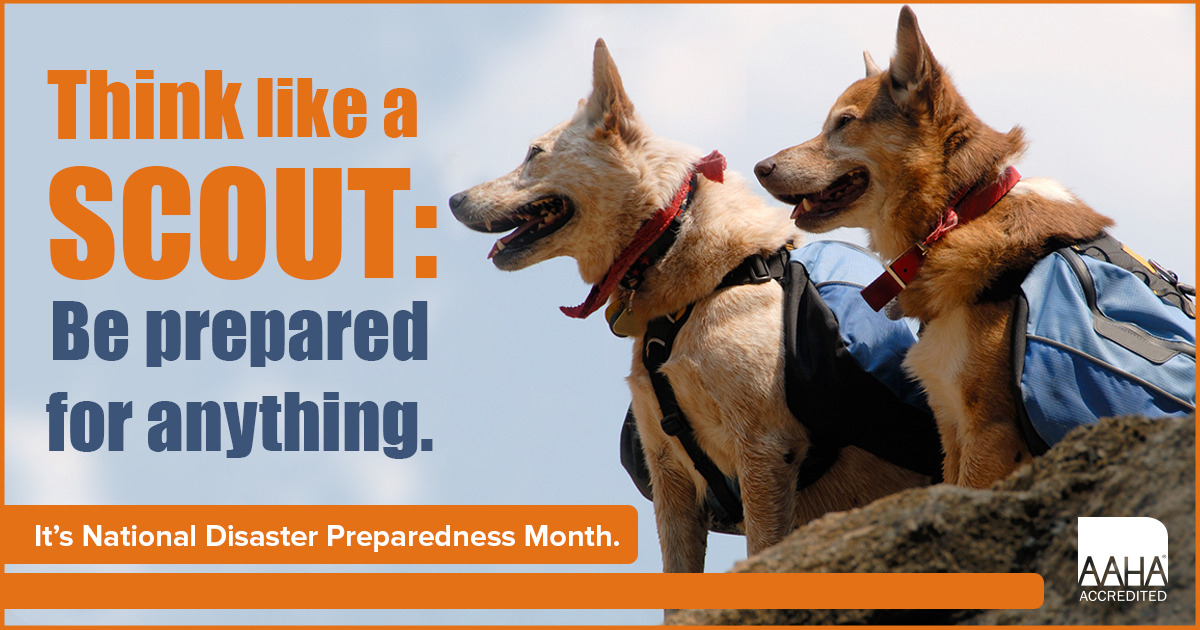
BE PREPARED! Pet owners may want to “paws” to make safety precautions for their pets in the event of a hurricanes, fires or any other natural disaster.
The best way to protect your family from the effects of a disaster is to have a disaster plan. If you are a pet owner it is important that you also consider their needs when developing your disaster plan. The Red Cross strongly urges against people evacuating without pets. Most municipalities are now required to have plans for the evacuation of pets, in addition to people. They need to ensure that local emergency preparedness operational plans address the needs of individuals with household pets and service animals prior to, during, and following a major disaster or emergency. To get ready for a disaster, people should find out where they can bring their pets, which can be done by contacting hotels or shelters to see what their policies are. Pet owners also may wish to reach out to people they know. Ask friends, relatives, or others outside the affected area whether they could shelter your animals. If you have more than one pet, they may be more comfortable if kept together, but be prepared to house them separately.
Our Wetaskiwin Animal Shelter has a contract with the local municipality to help Victim Services look after the pets of anybody affected by a natural disaster or emergency situation.
Pets need their own emergency “Kits” and other necessities such as food, water, bowls, leashes, carriers, cat litter, medicine and medical records. Keep these items in an accessible place and store them in sturdy containers that can be carried easily (duffle bags, covered trash containers, etc.) If you’re evacuating with your pets, dogs should be leashed and carriers should be used for cats. Don’t leave animals unattended anywhere they can run off since even the most trustworthy pets may panic, hide, try to escape, or even bite or scratch. Pet owners should allow their companions “time to settle back into their routines” upon coming back home.
